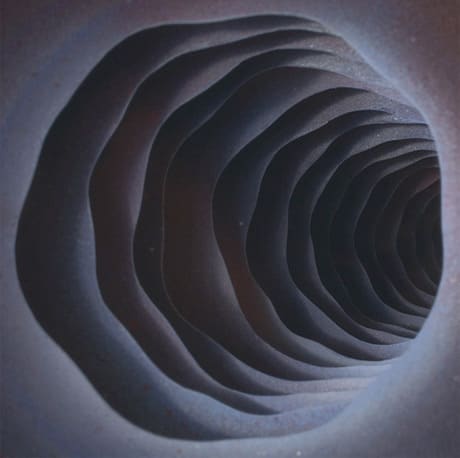On Neil Young's acoustic ballad "Hey Hey, My My (Into the Black)," the Canadian singer-songwriter famously stated: "It's better to burn out than to fade away." On Dog Day's fourth (and possibly last) studio album, Fade Out, the Halifax-bred husband and wife duo manages to do both, delivering a scorching set of classic rock-indebted tracks that leaves listeners longing for more.
Recorded intermittently over a year at Seth Smith and Nancy Urich's seaside home studio, Fade Out captures the DIY charm of the band's earlier work, and represents their most maximalist effort to date.
Channeling the dystopic chime of '70s rock'n'roll (the Flamin' Groovies) and the radio-ready cuts of FM's golden era (the Rolling Stones, Led Zeppelin), Fade Out sounds like what would happen if The Partridge Family were reimagined as a spin-off to The Walking Dead and set in an abandoned missile silo with nothing more than a rusty four-track recorder, Hershel's record collection and the bare-bones provisions needed to survive.
Starting out with the "No Time"-aping chord progression of "Blackened," Dog Day take listeners on an exploration through the creative impermanence of a rock band set to destruct, diving into messy punk odysseys ("Wasted," "Alone With You"), cavernous post-punk ("Interview") and Sonic Youth-evoking doo-wop ("Lurking Fear").
While the band never quite captures the mainstream rock sound they mined so heavily for inspiration, Fade Out happens to be so much more, encapsulating the grunge era in a few delicately picked chords ("Leave Your Body"), perfectly reimagining the East Coast rock scene if all your friends hadn't moved away ("Joyride"), and what it would sound like if everyone had the courage to create the art they wanted to make (the liberating lo-fi pop of "Sunset").
Finishing with the down-strummed acoustics of "Before Us," Smith passionately sings "it's not over yet" over and over again as the song slowly disappears under layers of palm-muted guitars and dissonant piano vibrations. This may not be the official end of Dog Day, but if it were, it would be hard to argue another band has died so beautifully for their art.
(Fundog)Recorded intermittently over a year at Seth Smith and Nancy Urich's seaside home studio, Fade Out captures the DIY charm of the band's earlier work, and represents their most maximalist effort to date.
Channeling the dystopic chime of '70s rock'n'roll (the Flamin' Groovies) and the radio-ready cuts of FM's golden era (the Rolling Stones, Led Zeppelin), Fade Out sounds like what would happen if The Partridge Family were reimagined as a spin-off to The Walking Dead and set in an abandoned missile silo with nothing more than a rusty four-track recorder, Hershel's record collection and the bare-bones provisions needed to survive.
Starting out with the "No Time"-aping chord progression of "Blackened," Dog Day take listeners on an exploration through the creative impermanence of a rock band set to destruct, diving into messy punk odysseys ("Wasted," "Alone With You"), cavernous post-punk ("Interview") and Sonic Youth-evoking doo-wop ("Lurking Fear").
While the band never quite captures the mainstream rock sound they mined so heavily for inspiration, Fade Out happens to be so much more, encapsulating the grunge era in a few delicately picked chords ("Leave Your Body"), perfectly reimagining the East Coast rock scene if all your friends hadn't moved away ("Joyride"), and what it would sound like if everyone had the courage to create the art they wanted to make (the liberating lo-fi pop of "Sunset").
Finishing with the down-strummed acoustics of "Before Us," Smith passionately sings "it's not over yet" over and over again as the song slowly disappears under layers of palm-muted guitars and dissonant piano vibrations. This may not be the official end of Dog Day, but if it were, it would be hard to argue another band has died so beautifully for their art.
